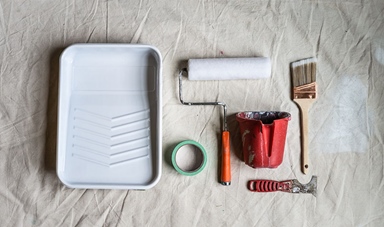Loading component...
At a glance
“Property investors need to know the tax implications of renovating because there can be both income tax and capital gains tax implications, and there might even be GST implications,” warns Stephen Jones CPA, partner at ATM Consultants.
“It happens too often where we see people come in and say, ‘We subdivided our block of land from our home and sold it this year. That should be all right.’ We say, ‘Well, there’s capital gains tax on that’.”
Jones outlines five key tax considerations for investors planning to renovate their properties.
Know the difference between repairs and renovations
Repairs and renovations have very different tax treatments. Repairs are generally a deductible expense, so can be deducted from the investor’s present year’s income.
Renovations are usually a capital expense and may be able to be depreciated over time.
If they are plant and equipment, such as a new stove for instance, then they can be depreciated over the useful life of that item. The actual construction, however, is treated under a separate division of the tax act and has to be written off over 40 years at 2.5 per cent a year, says Jones.
If the property is sold sooner, then the remaining capital costs are used to calculate the cost base of the investment, reducing the amount of capital gains tax payable.
The key difference is that repairs are maintaining what is there already – for instance, repairing a hot water heater or repainting the property. Renovations may be an improvement but not necessarily just a major construction job. Replacing old lino with carpet, for instance, would count as a renovation.
Jones says the difference between repairs and renovations can be a grey area.
Get the timing right
He warns that one trap investors fall into is buying a property and making repairs straight away, before they have a tenant. “If you carry out repairs before anybody has actually rented the property, that would be regarded as initial repairs and therefore they’re all treated as capital and not deductible,” he says.
Repairs are deductible because they are fixing wear and tear caused by the tenants.
Some people buy a property and they work on it before they rent it. If they made repairs some time later, after it had been rented, the expense may be deductible. Jones says it can be a judgment call as to how much to repair a property before a tenant moves in.
It may make sense to upgrade a rundown house to attract a good tenant.
Keep detailed records
What might seem on face value like a renovation only – and so not deductible – might have components of repairs. For instance, repainting an existing room would count as a repair.
“When people do renovation, probably some of what they do is capital, and some of it is going to be regarded as repairs, and they should allocate those separately,” Jones says.
“The other tip is to make sure you keep the records because even if it’s a capital item and you can’t claim a deduction as such and you’ve done improvements, then you can add those to your cost base for capital gains tax later on when you come to sell the property.”
Property investment advice: know the A$300 deduction rule
Items which investors would normally have to be depreciated over a number of years, for example fixtures such as light fittings, can be immediately written off if they cost less than A$300, says Jones.
It can be worth trying to stay under that cap for certain items or buying smaller items individually rather than as a job lot. This won’t always be accepted, however, if assets have to be bought as part of a set costing more than A$300.
Consider the GST implications
Newly-built homes are subject to GST when they are sold and Jones warns that what are known as “significant renovations” could make the property subject to GST as well.
What significant renovations means exactly can be a bit of a grey area, but as a rough guide, Jones says moving around non-loadbearing walls within the property is probably OK but adding rooms or another storey could be regarded as significant renovations.
Fortunes have been made in property prior to the downturn in 2019, but as these tips show, renovators can make some costly miscalculations when it comes to tax treatments.

